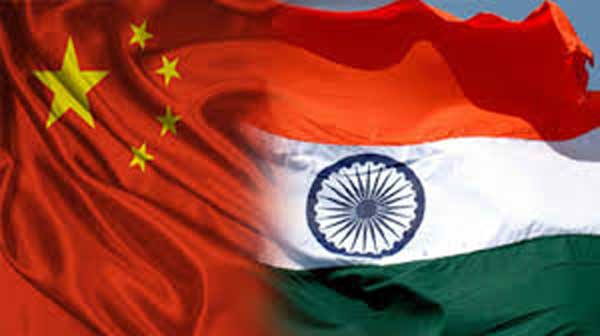India and China, in their contest to establish dominance over South Asia, are creating a hostile environment in the region, and, as a fallout, crimping economic prospects of their smaller neighbors.
Besides the economic setback, Sino-Indian duel for strategic upper-hand is also exacting a human tool, namely repression of Muslim minorities in Myanmar and Hindus in Sri Lanka.
Until Delhi and Beijing have a minimal strategic relationship for mutual economic and trade benefits, the region will continue to suffer an economic hemorrhage to the detriment of all.
The inability of these two giants to have some form of a minimal strategic relationship for mutual economic and trade benefits continues to hurt them as well as their neighbors.
How brinkmanship by India and China affects their neighbors was evident recently at the United Nations. More than 500,000 Rohingya Muslims have fled to Bangladesh since August to avoid persecution by Myanmar’s army. But both Beijing and Delhi dismissed it as Yangon’s internal affair, because they wish to be in good graces of strategically important, natural-resource-rich Myanmar.
India, China Fuel Tension
Their policies have fueled regional tension. Bengalis are pressing their government to arm the refugees to fight Myanmar’s military. Dhaka has conveyed its displeasure to both India and China over their policies.
On the contrary, if Dhaka and Yangon maintain good neighborly relations, they can aid each other on the economic front, boosting their yearly trade volume 10 times exceeding $1 billion. Bangladesh can tap into Myanmar’s huge potential hydroelectric power. Along with India and China, they can build an economic corridor to improve lives of 400 million hapless residents in the region.
Cast against these possibilities the recent India-China brawl. In June, China started building a road in Bhutan’s Doklam Plateau, near India’s border. Bhutan sought India’s backing to assert its land ownership. India marched its soldiers to help Bhutan. The standoff began because of India’s sensitivity to China’s move, which would give Beijing access to a corridor that connects India to its restive northeastern states. China suspects that Bhutan’s assertion of its claims has been prompted by Delhi. The tension eased after both sides backed down.
Humanity Takes Back Seat
The critical issue for Bhutan is entirely different, however. For Bhutan, Doklam is important, but it is a minor distraction compared with economic developments.
In Sri Lanka, Hindu citizens are the casualties of the Sino-Indian cold war. Defending ethnic Tamils from army excesses after the separatist Tamil Tigers lost the civil war in 2009 was paramount for Tamil Nadu. But India sacrificed them in favor of economic and military issues because of the China factor.
China’s aid to Sri Lanka boomed since the 26-year-long civil war ended. China’s two deep-sea ports projects in Sri Lanka are located at strategic points in global sea trade. Mega projects like these help Beijing draw Colombo into its One Belt and One Road Initiative, a plan to connect Asia to Europe and Africa via rail, road and sea links.
Public attitudes in China and India against granting territorial concessions limit both the nations’ flexibility in negotiations on the long-running border dispute.
Pakistan is another battleground. Beijing is doing several big infrastructure deals under the China-Pakistan Economic Corridor plan. India opposes the corridor, saying it passes through Pakistan Occupied Kashmir, which is integral part of India. India’s opposition stems from its fear that the project could help China build a navy base by linking Pakistan’s Arabian Sea port with Xinjiang province.
Border Disputes Bedevil Solution
None of the smaller neighbors, however, wants China and India to fight. After complaining about China’s attempt to build a road in Doklam, Bhutan went into hibernation, signaling it opposition to a Sino-Indian war.
Because of the sheer size of its landmass, economy and military, India sees itself as regional Big Brother. But its little siblings seek to protect their interests. China misses no opportunity to exploit this resentment to solidify its position. And, every time Beijing makes a move, India takes a cautionary note.
Because of the long-running border conflict, India sees its bilateral relationship with China tilted toward its adversary. This perception leads India to oppose a Chinese-led regional trade pact and a dramatic opening of its market to Chinese consumer goods.
Until Delhi and Beijing remove the border dispute, the region will continue to suffer an economic hemorrhage to the detriment of all. Both sides seem to understand that. But public attitudes against granting territorial concessions limit their flexibility in negotiations. Preparing the public with a stiff dose of pragmatism is the prime task ahead for both Delhi and Beijing.





